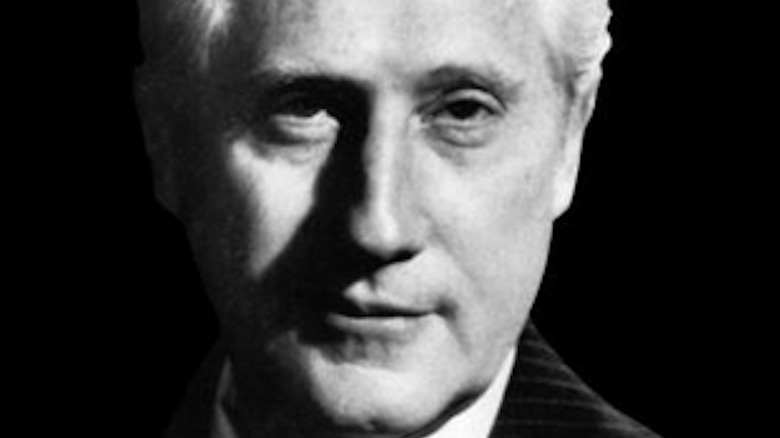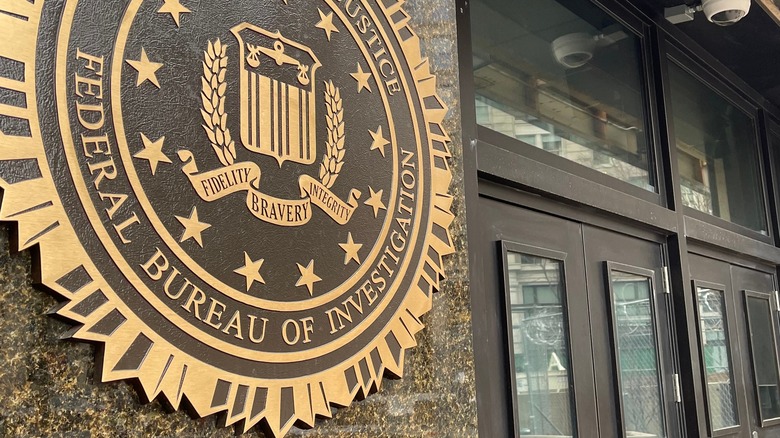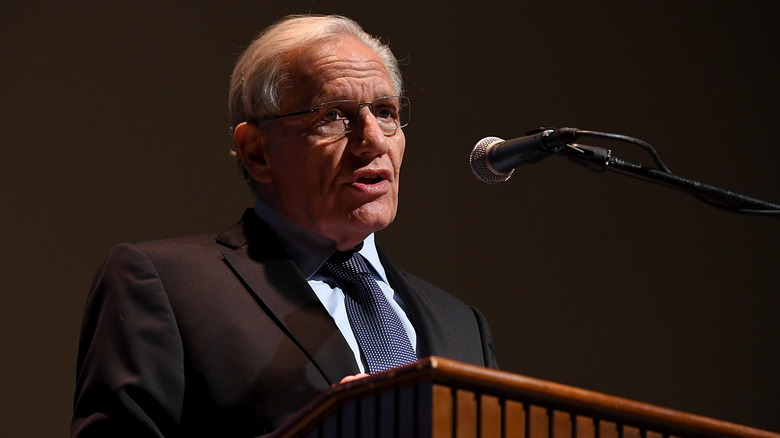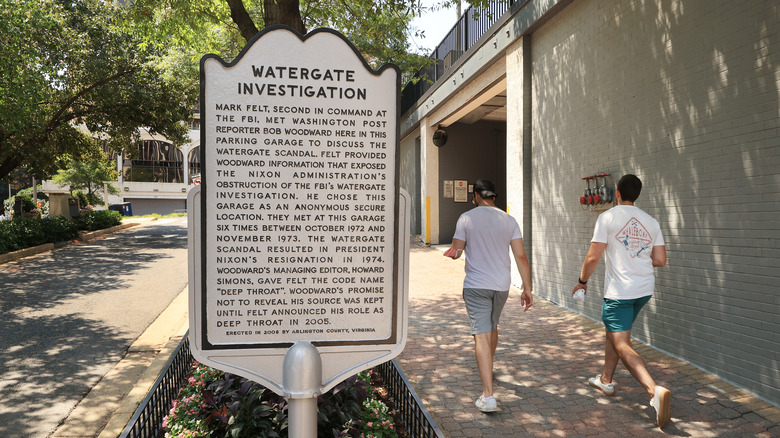Who Was The Real Deep Throat From The Watergate Scandal?
It's been 50 years since the break-in that set the Watergate scandal into motion, and some aspects of it remain puzzling and uncertain. We'll probably never know what was on the 18 missing minutes of Richard Nixon's tape recordings, but there is one thing that's no longer a mystery: the real identity of the person known as "Deep Throat."
Deep Throat was an apparently high-ranking government official who leaked information about the Watergate scandal to Washington Post journalists Bob Woodward and Carl Bernstein. For more than 30 years, the journalists and Deep Throat himself kept his identity secret. His information was key in proving that White House officials did indeed know about the break-in ahead of time and were involved in a larger conspiracy to undermine Democratic election campaigns. Revelations continued for the next two years after long trials of some of Nixon's top aides and the subpoena of the tape recordings from his office. In August 1974, Nixon became the first and only American president to resign (via Britannica).
Deep Throat's identity
In 2005, an article in Vanity Fair magazine shocked readers: former deputy director of the FBI W. Mark Felt Sr. revealed himself as Deep Throat. He was born in 1913 in Twin Falls, Idaho, and went to the University of Idaho and George Washington University's law school. He worked for Senator James P. Pope in the late 1930s and joined the FBI in 1942 (via The New York Times). During World War II, he investigated German spies, and 30 years later, FBI director J. Edgar Hoover named him deputy director, the third-in-command at the bureau's Washington, D.C. headquarters.
According to the Vanity Fair piece, his decision to leak information began in 1971, before the Watergate Hotel break-in even happened, when he was asked to wiretap other government officials suspected of leaking insider information to the press. Felt was reluctant, and a few days later, Nixon decided to use CIA agents instead of the FBI. He also refused to have the FBI declare a suspicious White House memo a forgery.
After the Watergate break-in, the White House continually obstructed the FBI's investigation of the burglary. Felt refused to call off interviews or limit the investigation to only a few suspects. All this caused Felt to feel that he was fighting for the long-term integrity of the bureau.
Felt's relationship with Woodward
According to Mental Floss, Bob Woodward and W. Mark Felt Sr. had met well before the Watergate scandal began. Woodward, a Naval officer, was delivering a package to the White House, and while waiting to hand it over, he encountered Felt, and they chatted. Woodward left with Felt's phone number, and they kept in touch over the next few years, with Woodward seeing Felt as a mentor. Felt began feeding him information, originally about the assassination attempt on Alabama governor George Wallace, then about Watergate-related arrests, which happened shortly afterward.
During the Watergate years, Felt and Woodward had complicated methods of communicating with one another. If Woodward wanted to meet, he would put a flower pot with a red construction flag on his apartment balcony. If Felt wanted to meet, he would arrange for the hands of a clock to appear in Woodward's copy of The New York Times, page 20. They would meet in an underground parking garage. Woodward would take two taxis and walk part of the way to the garage to avoid being followed (via Vanity Fair).
When Felt was considering revealing his identity in the early 2000s, he asked for Woodward's advice. They had multiple conversations about it, and Woodward also talked to Felt's children and grandson, as well as John O'Connor, who would eventually write the Vanity Fair article. Woodward wanted to make sure they weren't pushing Felt to confess and that his mental state — he was elderly at the time — was stable.
Felt's post-FBI troubles
W. Mark Felt Sr. left the FBI in 1973, before the end of the Watergate scandal (per Biography). Five years later, he was indicted for having approved illegal break-ins by the FBI. Agents entered homes without warrants, looking for information about the suspected bombers from the Weather Underground, a militant group of anti-Vietnam War communists (via Vanity Fair and Britannica). The break-ins targeted the homes of friends and family members of the group's members. Felt claimed he had been acting in the interests of national security and had done nothing wrong, but he was convicted anyway in 1980.
Many FBI agents protested the proceedings, and Felt appealed his conviction. During the appeal process, Ronald Reagan became president and decided to pardon Felt. It was an interesting parallel to Nixon's case: illegal break-ins followed by a presidential pardon. Felt's trial overshadowed his early years of retirement and caused severe stress for him and his wife; according to Vanity Fair, he blamed that stress for her early death in 1984.
Coming forward as Deep Throat
After increased speculation and even a Globe story proclaiming W. Mark Felt Sr. as Deep Throat, he confirmed it to his children, who then pressed him to officially, publicly acknowledge it. A few people aside from Bob Woodward, Carl Bernstein, and Felt already knew the truth, and some were leaking it. Felt's daughter Joan believed that if he admitted it, it would bring the family closure and positive notoriety (via Vanity Fair).
Felt was resistant and warned his children not to do anything about it without his approval. They argued that they wanted him to be recognized by name — not just anonymously — for what he had done for his country. They also hoped to make money off the story and asked him to do it for the family, so they would be financially stable. That was what finally convinced him, though it didn't spare him from feeling conflicted about the decision.
Felt's feelings about being Deep Throat
W. Mark Felt Sr.'s conflicted feelings about revealing his identity stemmed from his long-held uncertainty about the morality of his actions during the Watergate years. He was worried that other FBI employees, both past and present, would view him in a negative light. John O'Connor, the Vanity Fair writer, assured Felt that current FBI agents considered Deep Throat patriotic. Felt still worried about dishonoring his family with the revelation and about the possibility of facing legal action because of what he had done.
He wavered between a sense of shame for leaking the information and a sense of having done his duty as he saw it. He was never trying to bring about Nixon's downfall, he said. Felt's son described him as "tortured" about the whole thing and said he wouldn't have done it if he had felt there was any other way to deal with the corruption in the government at the time. According to his grandson in the Vanity Fair piece, he did, in the end, feel he had done the right thing.





